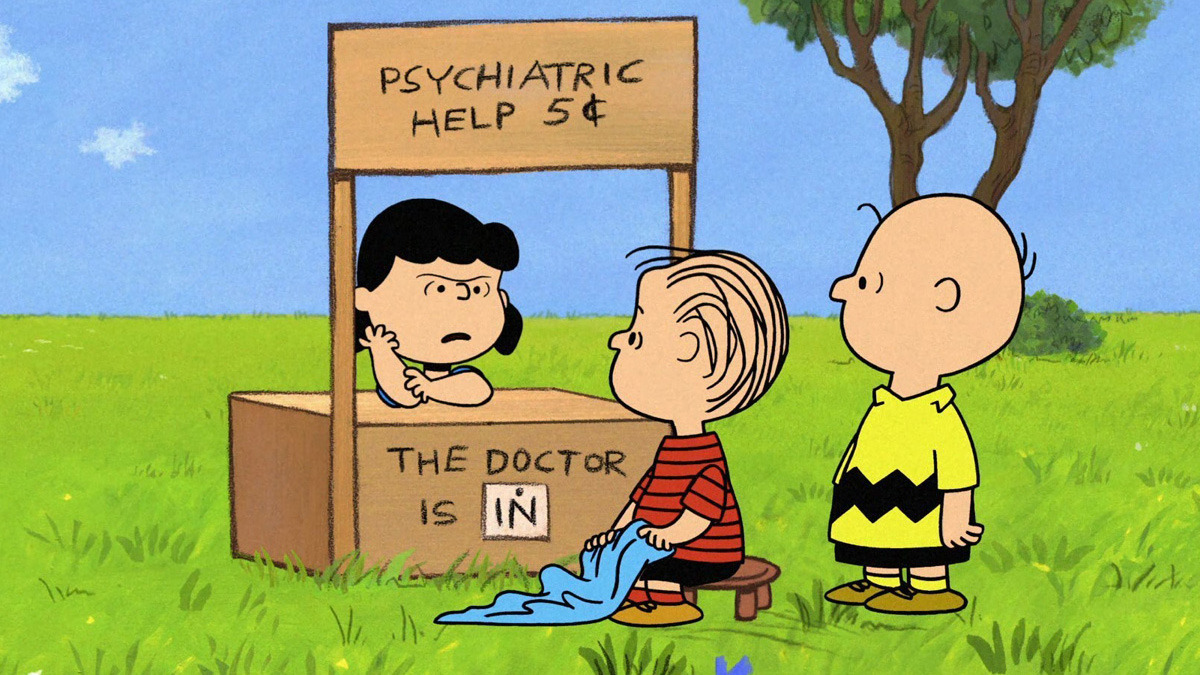
“My absolute dream is to create my own television show.”
Sometimes I’ll get an email from someone who likes what Frederator does and would like to know something about the cartoon business. In this case it’s a college senior in an animation program (who’d corresponded with me when he was in high school) who’s working on his senior thesis film and would like to create his own series someday.
These questions were really good and reflected some of the issues that many students from outside the industry are concerned with when their only insight comes from reading. In this case I felt like the inquiries were a little too concerned with the ‘how’ of selling a series.
Here are the questions and my answers.
As a bonus, I’m adding some smart thoughts from Frederator’s Eric Homan, our head of development and creative affairs.
How is Frederator specifically able to take what is intended to be a 15-30 minute episode and shorten it into 2-3 minutes while keeping the integrity of the story/implying a larger universe within the possible show?
We never do what you’re suggesting.
1) Frederator asks for a 6 minute cartoon short pitch (that is, when we’re in a cycle of shorts production like Oh Yeah! or Too Cool! or GO! Cartoons). It’s not a random length, it’s approximately how the great theatrical shorts were produced and I’ve always figured, steal from the greatest. If it were completely in my control, I’d always make 6 minute cartoons, but most of the world wants 11s. That being said, we want to know there are great characters we love, and a filmmaker who has control of his/her situation on film.
2) As a producer who wants to see the most for the least, I’ve tried to do 2-3 minute cartoons for 25 years. Filmmakers resist, as do my smarter-than-me development colleagues, correctly, because in three minutes it’s way harder for one to truly get a sense of character (the most important thing, in our opinion). A short film like that tends towards the punch line, the gag, which, while it can be hilarious, gives you no sense of how the character behaves, what it wants, how it really moves throughout a film.
3) The one time we agreed to produce a 20 minute storyboard and cut it down for 6 minute production there was really a problem (the first Powerpuff Girls short). What had been a clean, coherent story was truncated, almost impossible to follow. Almost killed the potential series.
I would suggest that you don’t want a film to be anything but the greatest it can be for whatever format you choose. If it’s going to be two or three minutes, try and map out the greatest two minute cartoon you can muster.
Don’t think about what it could be in another format. You’ll inevitably fail at both.
I have two characters in my series who would occur in every episode of my theoretical show and be extremely important. I also believe these characters have not only mascot capability, but toy line possibilities in this magical theoretical world in which my show were to get picked up.
Stop worrying about the “pick up.” Maybe it’ll happen, maybe it won’t. Make a great f-ing film, full stop. That’s the most likely thing to help your future, a wonderful picture.
Sure, it’s possible your characters are wonderful enough for a future (it’s happened a few times for creators we work with, but it’s extremely rare, maybe 1%. 1%! But showing you’re a talented filmmaker gives you the most opportunity.
I’ll add that a lot of creators are convinced of the “toy line possibilities” of their cartoon characters. But you know, if the cartoon doesn’t succeed, there are no toys. And even if it does, successful cartoons often don’t translate into toy sales. Seriously.
Should I get rid of these characters in my thesis and focus on a good short film, or is it worth it to take the time to keep them in, as a way to help the producers better visualize the dynamic of the show?
Stop with the worrying about producers. Create a great short. See above.
OR would telling any producer this much detail just scare them off?
I would only be repeating myself.
Also, I was wondering about pitch meetings; first off, how does one go about getting a pitch meeting?
You call every development department at every studio or network you can locate and ask for a meeting. Some will see you (like Frederator), many won’t. If they do, you’ll be ask to sign a legal release that says they’ve probably seen characters and ideas like your before (it’s true, though very few believe it) and you won’t sue if something similar turns up in a production schedule 1000 years from now.
I realize that it is a lot of who you know, but what kind of channels should I take to go about getting my work out there?
A lot of it is who you know. But, an email address on YouTube will net you 1 billion potential viewers around the world. A few of them are producers or development executives. They’re even some watching other video platforms.
Festivals, local animation events, conferences are good places to expand the “who you know” category.
My favorite advice, which all filmmakers reject, is to get a low level job at a studio to meet people who have trod the same path as you’re going to go on. They’ve all been there and, in my experience, are incredibly generous with new generations of ambitious, hard working people. There really are worse routes to travel.
Should I get an agent, or try to crowd source it, in hopes that it gains traction?
You should try everything. It can be frustrating and painful, but what’s great that isn’t?
Should I submit it to the New York pilot episode film festival? If that’s a good route, are there any other festivals you would recommend me submitting to, or are those submission fees just a waste of money?
Try everything and anything. You have nothing to lose, everything to gain.
Finally, let’s say I find a genie and use one of my wishes for a pitch meeting? How many ideas for the series should I walk in with, to show I’m passionate about this project, while not scaring them off or making the producer feel like they can’t get their hands in it?
If producers are scared of you, they’re not the producers for you.
My personal advice is to go in with the project you most believe in. Since it’s unlikely (not impossible) you’re going to sell it anyway, gauge how producers feel about the thing you feel best about. If they don’t understand it, they’re not for you. On the other hand, their critiques could be useful, if you’re open enough to actually hear it.
Should I tell them about toy ideas or an app idea that could partner very nicely with the show? Or should I leave those ideas for later and keep them in my pocket?
Up to you. As I wrote up above, my experience is that many creators are positive the toys are going to be major sellers (seldom true with comedies, by the way) and honestly, at the initial stage, I could care less. We’re focused on whether or not we want to work with the creator, is the film going to glorious, do we love the characters. The more someone has thought about merch, in my mind (probably untrue) the less they’ve thought about the actual film.
>>>>>>
(Even better) advice from Frederator’s Eric Homan:
If you’re interested in being a successful cartoon creator, maybe research your favorite animators, cartoonists, and artists and find out how they trained and got to where they are today. While there isn’t one true path to success, you’ll sure find some commonalities that should help you along the way. For instance, you should really work on those drawing and filmmaking skills. You don’t have to be the best artist in the world, but if you look at your favorite cartoons—and most successful ones—you’ll probably find most were created by cartoonists.
Today, with streaming services and the Internet, past constraints in which properties need to fit—including demographics and length of not only episodes but also in “seasons”—are falling by the wayside. Every executive will ask you how you envision your work being told, but more and more we’re seeing what works best for your story and characters dictate length, not the other way around.
Frederator is focused on falling in love with characters. If there’s anything in a pitch that overwhelms them, consider scaling back the non-character elements or work on your characters. Probably both. You want to give executives just enough to get them excited to see more, or enough that she can then pitch the idea to her boss. Like Winston Churchill said, “A good speech should be like a woman’s skirt; long enough to cover the subject and short enough to create interest.”
Not working for a toy-driven studio, I tune out when creators being to talk about merchandise. If you’re pitching to studio where merchandise is a key factor to a “yes,” I can pretty much guarantee you the folks you’re pitching to will have a strong sense of what properties are better for toys and such.
I would always start with just one pitch, your favorite. This is especially true for new people in the room, whether creators or executives. The feedback you receive on that one pitch will help you craft your second.
In general always being working on the those non-creative things, too, that will make executives want to work with you, including responsibility, relationships, and resume.



